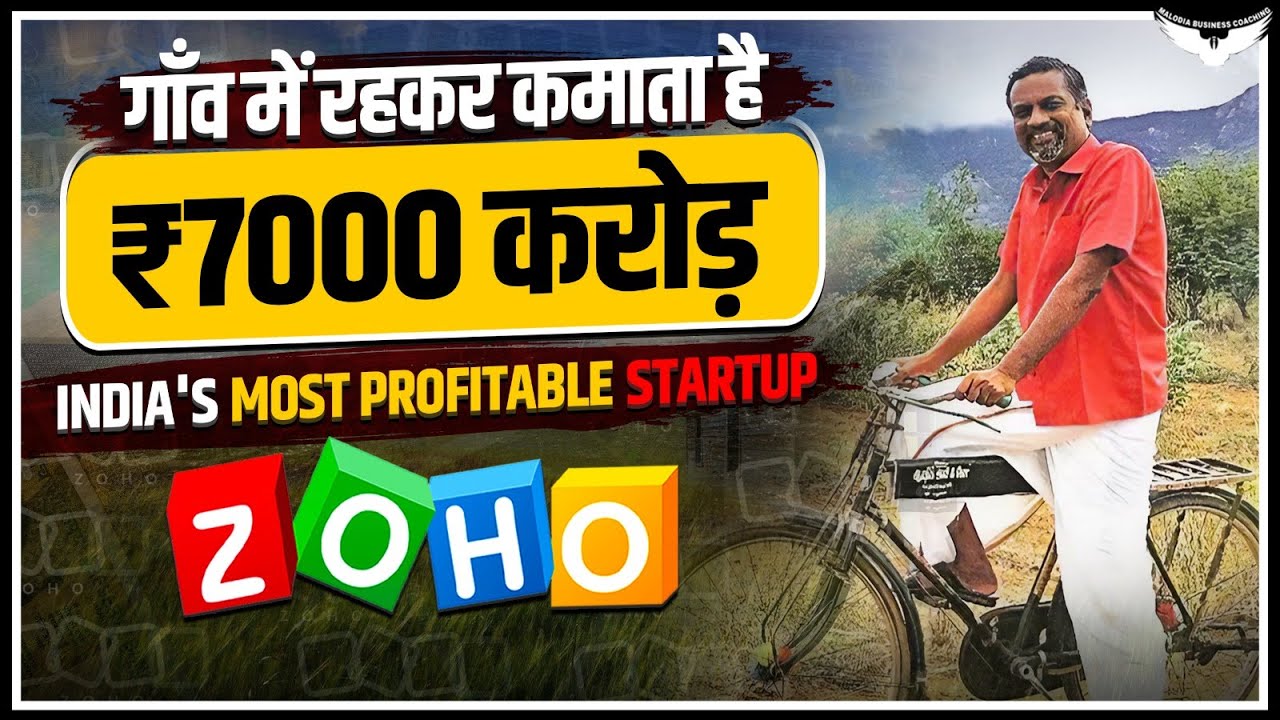Startup ini taklukkan industri tanpa dukungan investor!
Summary
TLDRIn 2007, Indian engineer Sridhar Vembu launched Zoho to compete against Salesforce, a dominant player in the cloud-based CRM market. Operating without external funding, Zoho thrived while Salesforce struggled financially, growing its user base to over 70 million globally. Vembu's strategy focused on affordability and targeting small to medium-sized businesses, coupled with innovative marketing campaigns. By developing an integrated suite of applications and emphasizing organic growth, Zoho showcased that commitment and understanding of customer needs can lead to success without reliance on external investors. This journey illustrates the power of visionary leadership in navigating industry challenges.
Takeaways
- 😀 Sridhar Vembu founded Zoho in 2007, directly competing with Salesforce in the cloud-based CRM market.
- 🚀 Vembu launched Zoho without any external funding, focusing on building a sustainable business model.
- 💡 Zoho targeted small and medium-sized enterprises (SMEs) that were underserved by existing software solutions.
- 🔧 The company emphasized frugal innovation, simplifying products to reduce costs while retaining essential features.
- 📈 Instead of acquiring other companies, Zoho chose organic growth by reinvesting profits into product development.
- 🎯 Creative marketing strategies included bold campaigns that directly targeted Salesforce customers.
- 👨🎓 Zoho established Zoho University to train programmers from underprivileged backgrounds, ensuring a loyal workforce.
- 🌐 The company developed a cohesive platform that integrates various applications, simplifying processes for users.
- 📊 By 2021, Zoho surpassed 70 million users worldwide, highlighting its significant market presence.
- 🔑 Vembu's leadership showcases the importance of understanding customer needs over seeking external funding for growth.
Q & A
What motivated Sridhar Vembu to compete against Salesforce in 2007?
-Sridhar Vembu decided to compete against Salesforce, a highly successful American software company, without any funding from investors. His motivation stemmed from a desire to establish Zoho Corporation as a viable alternative in the cloud-based software market.
How did Zoho manage to attract customers away from Salesforce?
-Zoho attracted customers from Salesforce by offering affordable solutions tailored for small and medium-sized enterprises (SMEs) and executing creative marketing strategies, such as billboards that directly compared Zoho's services to Salesforce's.
What was the original focus of Advanced Network Technologies (AdvanNet)?
-AdvanNet initially focused on developing and selling network management tools to telecommunications companies.
How did the dot-com bubble affect AdvanNet and its founders?
-The dot-com bubble burst led to a significant downturn in the telecommunications sector, resulting in financial instability for AdvanNet. The founders had to rethink their business strategy to avoid similar crises in the future.
What strategy did Zoho adopt to differentiate itself from Salesforce?
-Zoho differentiated itself from Salesforce by targeting the underserved small and medium enterprise market, offering simpler, more affordable solutions that met the general needs of these businesses.
What innovative approach did Zoho use in its product development?
-Zoho employed a frugal innovation strategy, breaking down its products into essential components to lower production costs while maintaining quality, thereby making their services more affordable.
What impact did Zoho University have on the company?
-Zoho University provided a steady stream of trained programmers, many of whom became loyal employees. The program aimed to uplift students from underprivileged backgrounds, offering free education and salaries during their studies.
Why did Zoho choose not to seek external funding from venture capitalists?
-Zoho opted against accepting venture capital funding to maintain control over its operations and to avoid being pressured to go public, focusing instead on organic growth and reinvesting profits back into the company.
How has Zoho's growth strategy differed from that of its competitors?
-Unlike many software companies that grow through acquisitions, Zoho developed all of its products internally, allowing for greater control and integration across its service offerings.
What key lessons can be learned from Sridhar Vembu's story?
-The key lessons include the importance of commitment and passion in business success, the value of understanding and addressing customer needs, and the potential for growth without relying on external funding or acquisitions.
Outlines

このセクションは有料ユーザー限定です。 アクセスするには、アップグレードをお願いします。
今すぐアップグレードMindmap

このセクションは有料ユーザー限定です。 アクセスするには、アップグレードをお願いします。
今すぐアップグレードKeywords

このセクションは有料ユーザー限定です。 アクセスするには、アップグレードをお願いします。
今すぐアップグレードHighlights

このセクションは有料ユーザー限定です。 アクセスするには、アップグレードをお願いします。
今すぐアップグレードTranscripts

このセクションは有料ユーザー限定です。 アクセスするには、アップグレードをお願いします。
今すぐアップグレード関連動画をさらに表示

Perusahaan ini kumpulkan pemuda desa untuk lawan Silicon Valley

ZOHO Case Study | बिना किसी लोन के बना डाला भारत का सबसे Profitable Startup | Rahul Malodia

What Is Zoho?

CRM, Cloud Computing & Salesforce | The Complete Salesforce Administrator Course

What is Salesforce? | 2024 | Simple Explanation of Salesforce by Shrey Sharma

Best CRM Software 2024 | Expert Analyst's Top CRM Comparison
5.0 / 5 (0 votes)
